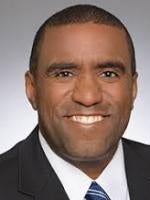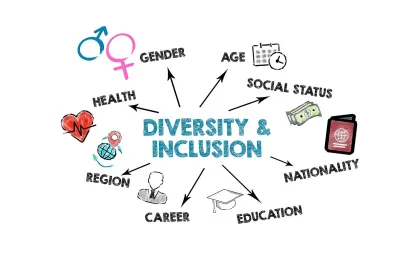American Alliance for Equal Rights (AAER) is suing two law firms, Perkins Coie LLP (Perkins) and Morrison & Forester LLP (MoFo), for alleged violations of Section 1981 of the Civil Rights Act of 1866 (Civil Rights Act). AAER claims that the law firms’ respective diversity fellowship programs for summer associates discriminate based on race. All companies should be aware of ten key things related to these two federal lawsuits filed on August 22, 2023, American AAER v. Perkins Coie LLP in Dallas and AAER v. Morrison & Forester LLP in Miami.
- AAER is suing Perkins because its law firm fellowship program gives a preference to students of color. Perkins’ Diversity Fellowship Program states that criteria for the fellowship include “membership in a group historically underrepresented in the legal profession, including students of color, students who identify as LGBTQ+, and students with disabilities.” If a candidate was chosen as a Diversity Fellow during their 1L year that candidate could possibly receive up to $40,000 in fellowship funding in addition to experience and a salary working at Perkins as a summer associate. AAER is attacking MoFo’s Keith Wetmore 1L Fellowship for Excellence, Diversity, and Inclusion on similar grounds. AAER is seeking relief in the form of a declaration that MoFo’s Wetmore fellowship violates §1981 of the Civil Rights Act. If these fellowship programs are interpreted as a grant, scholarship, or gift from a private company, then a possible argument exists that Section 1981 does not apply because there was np "contract." However, if the fellowships are specifically tied to job opportunities, the Plaintiffs may have a viable claim.
- Section 1981 of the Civil Rights Act states that “All persons within the jurisdiction of the United States shall have the same right in every State and Territory to make and enforce contracts…” The statute applies to nongovernment actors and a contract need not already be in place as the section “protects the would-be contractor along with those who have already made contracts (Domino’s Pizza, Inc. v. McDonald).” AAER is relying on this statute to construe Perkins’ and MoFo’s fellowships as contracts. This claim is similar to AAER’s current suit against Fearless Fund where Fearless Fund provides grants to women of color-owned businesses (See Five Things to Know Regarding AAER vs. Fearless Fund).
- In AAER v. Perkins and AAER v. MoFo, the Courts will need to determine one key question: are these diversity fellowships considered contracts under Section 1981 of the Civil Rights Act? While not an issue in the two lawsuits, pursuant to rules and regulations promulgated by the Equal Opportunity Employment Commission, it also is illegal for an employer to publish a job advertisement that shows a preference for or discourages someone from applying for a job because of race, color, religion, sex, national origin, age, disability or genetic information.
- AAER may have a significant hurdle in its path as it relates to standing. AAER may need to show that its plaintiff was directly harmed by the law firms’ policies’ surrounding their fellowships and it is yet to be seen if AAER can withstand such a challenge from the law firms.
- In a recent Indiana case, plaintiffs sued Comcast Cable Communications in the U.S. Southern District of Indiana. This case involved Comcast’s grant program (Comcast Rise) which was only available to applicants that are persons of color. Plaintiffs sought a preliminary injunction to cease Comcast’s use of the grant program. The Court denied the preliminary injunction and held that plaintiffs had not shown any irreparable harm necessary to warrant a preliminary injunction because irreparable harm is not inherent or presumed in a statutory claim against a private company. Comcast later settled the case out of court and the terms of the settlement agreement are undisclosed.
- In a recent federal case in Washington state involving Starbucks, National Center for Public Policy Research v. Howard Schultz, et al., the district court found in favor of Starbucks when their board decisions were challenged regarding its diversity initiatives. Relying primarily upon the well-settled “business judgment rule,” the Court stated that whether or not DE&I policies are good public policy is something for our politicians and corporations to decide rather than for the Court to determine. (See Starbucks Wins Challenge brought by Shareholder)
- In relation to the overall U.S. workplace population, a disproportionately lower ratio of attorneys from diverse backgrounds exists compared to attorneys from majority-white backgrounds. In 2022, the National Association for Law Placement (NALP) published its “Report on Diversity in U.S. Law Firms.” This report found that law firm placement for people that come from historically underrepresented communities still is very low. For example, Black associates at law firms represent 4.5%-5.77% of all associates, which is far short of “equitable DE&I goals.” (NALP 2022 Report on Diversity in U.S. Law Firms; Minority Corporate Counsel Association).
- Fellowship programs for law firms and corporations focused on improving diversity and equity need to consider multiple alternative avenues to achieve their goals. One consideration for such programs is to not restrict applicants to a certain protected racial group. Instead, the program should allow (i) all racial groups to apply; (ii) all participants to explain how certain groups have been marginalized, (iii) the applicant to describe his or her experience with such marginalized groups, and (iv) the applicant to explain his or her plan to prevent further marginalization regarding such groups. The goal of DE&I is to remove artificial barriers that restrict diversity, improve the work environment to create an inclusive culture and inject equity into a system that has discriminated against such groups in the past. Anyone, regardless of race, can contribute to such a cause.
- Separate federal laws and Executive Order 11246 require affirmative action in employment for minorities, females, the disabled and veterans for companies doing business with the federal government. These programs remain a legal and permissible use in employment in the United States. It remains to be seen if and when they become subject to legal challenge. Private companies who voluntarily undertake such a plan lose the protection of these laws and their programs could also be subject to challenge.
- Firms and corporations that are dedicated to DE&I efforts, specifically those efforts that seek to inject equity into a system that has long discriminated against Black Americans, should consider all the above factors and monitor all of the recent cases against those efforts. Most importantly, they should engage legal counsel to help them evaluate their current and future DE&I programs to ensure they are permissible under the law. Please use our contacts below for more information.






 />i
/>i
